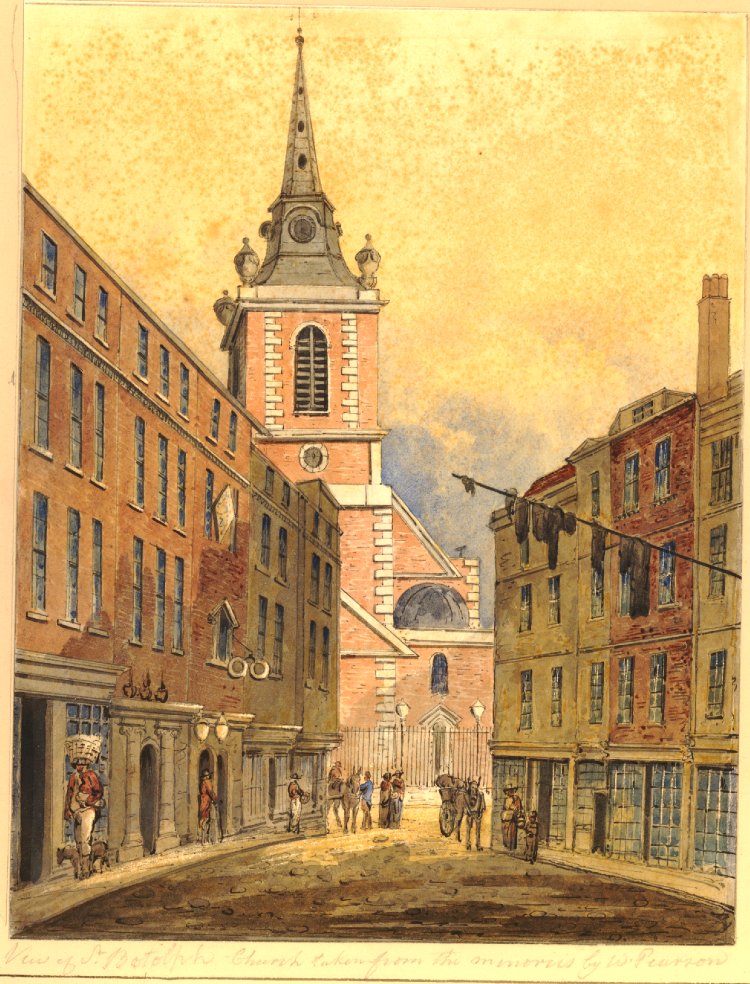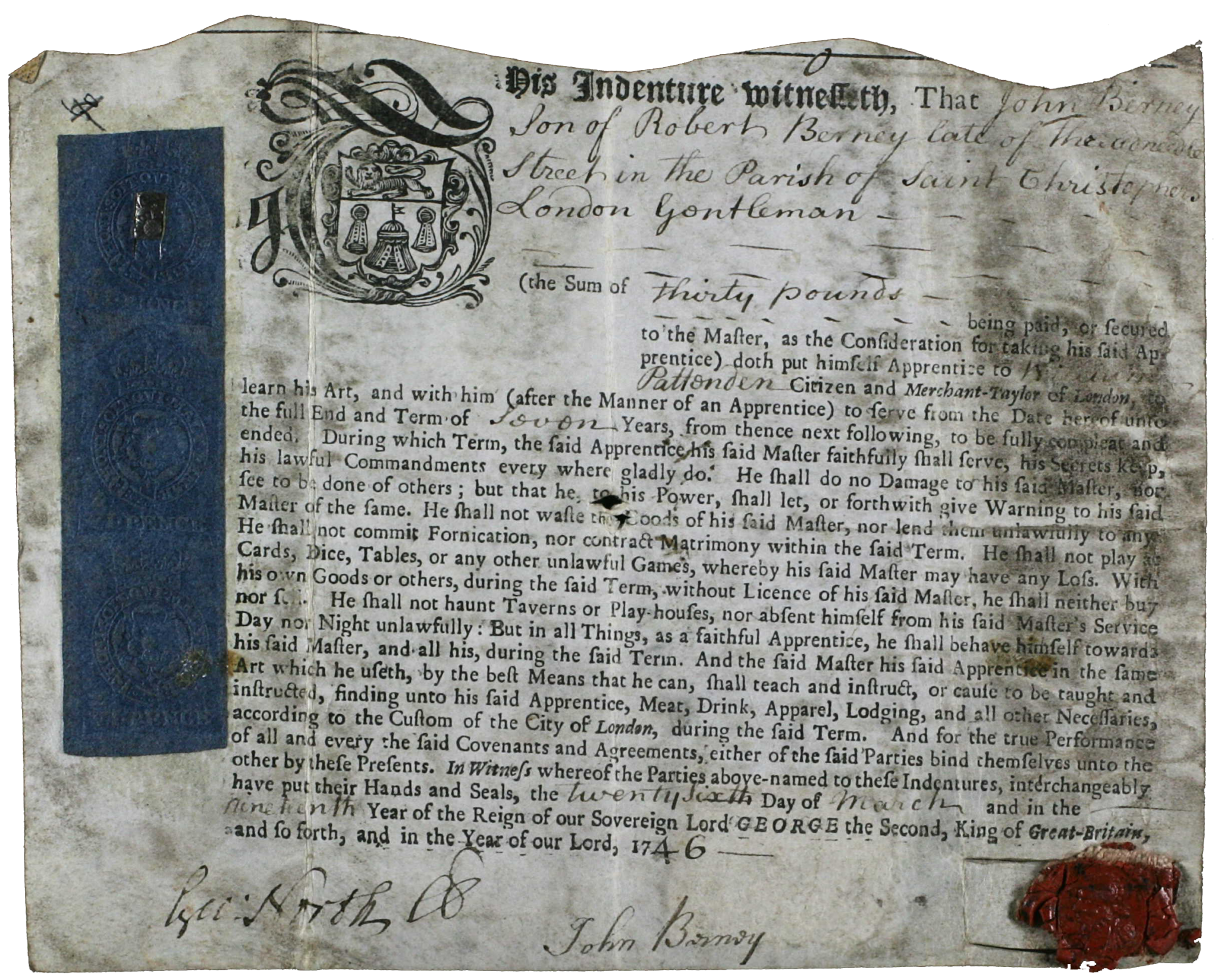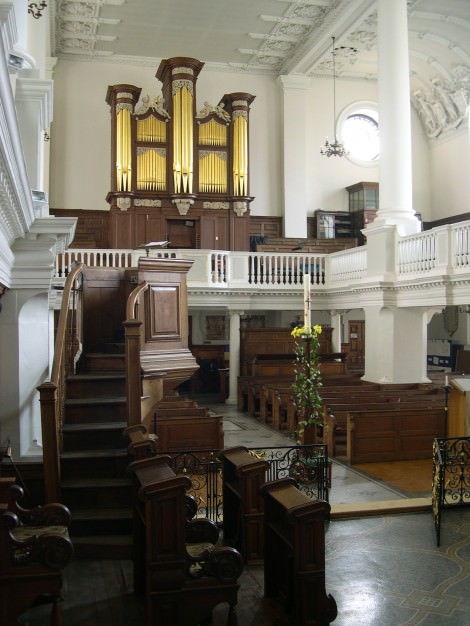When he wrote his will in 1769, shortly before he died, my great5-grandfather Thomas Munday described himself as a gentleman of Chamber Street in Whitechapel, just to the east of the City of London. He was evidently a man of some means, leaving bequests to his three children, Thomas, Elizabeth and Mary, and the bulk of his personal estate to his widow, Elizabeth.

His son, Thomas, had married Dinah Mitchell at St Botolph’s without Aldgate in 1754 where, the previous year, my great4-grandfather John Worgan had been appointed organist, so it is entirely possible that he may have played the organ on that occasion. Four years later it was at St Mary’s church, Whitechapel, that Thomas’s younger sister, Mary, was married to John Berney, whose great-grandfather had been a baronet, but who had recently completed his apprenticeship in the Merchant Taylors’ Company. John would go on to become the Master of the Company.
Thomas and Dinah Munday raised a family of eight children: daughters Elizabeth, Ann, Dinah and Mary, and sons Samuel, and Thomas. Two others died in infancy. All were baptised at St Botolph’s. The eldest daughter, Elizabeth, married Edward Wollstonecraft, whose sister Mary was to achieve fame as the author of A Vindication of the Rights of Women, and as the mother of the author of Frankenstein, Mary Shelley. I am descended from Ann who, at a date yet to be discovered, married Philip Thomas Perryman whose family had also lived in Whitechapel, in Prescot Street which was parallel to Chamber Street, but who, together with his brother Nathan, had become a merchant based at Ostend in what was then the Austrian Netherlands. Their father, Elias, had been a sea captain; the master of merchant ships trading to north European, Mediterranean and transatlantic ports (see Elias Perryman – sea captain).


Mary Munday and John Berney had a large family, 11 daughters and six sons, most of whom were also baptised at St Botolph’s. Tragically, but all too common in those times, only two sons and three daughters survived into adulthood. The younger son Edward who, so the story goes, became a Roman Catholic priest but later abandoned the priesthood and died at Cleves, in Germany, married his first cousin, once removed, Philippa, the daughter of Mary’s niece Ann Munday and Philip Perryman. Their eldest daughter, another Philippa, was to marry John Hartland Worgan, the grandson of the Aldgate organist John Worgan.
In July 2015 I had the great pleasure, with my late wife Sue, of attending a concert at St Botolph’s without Aldgate at which the music of John Worgan was played. The concert was organised by Tim Roberts, who has championed John Worgan’s music and recorded some of it. The organ in the church is the same organ that he played. It was installed in 1704-5, being reinstalled when the church was rebuilt in the 1740s, and is reckoned the oldest surviving church organ in the country. Click here to see a video of Dame Emma Kirkby singing one of John Worgan’s songs at that concert. My wife and I can be seen sitting on the left in the second row of pews from the front.
Not only is John Worgan my ancestor but so are the two Thomas Mundays and their wives, as well as Mary Munday, Ann Munday, Elias, Philip and Philippa Perryman, John, Edward and Philippa Berney and her husband, John Worgan’s grandson, John Hartland Worgan.
